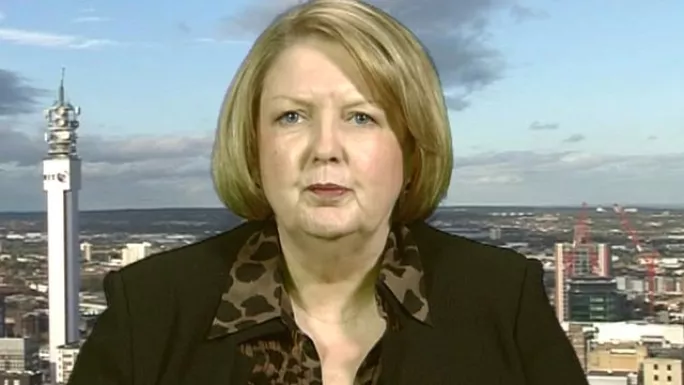
Unions step up attacks on use of unqualified teachers
More than half of teachers responding to a union survey say that there are unqualified staff teaching in their schools, it is revealed today, as opposition to the deregulation of the profession was stepped up.
Both of the biggest classroom unions are using their Easter conferences to attack new freedoms for state-funded schools to employ teachers without qualified teacher status (QTS) - a policy also condemned by Labour.
One respondent to the NASUWT poll of more than 7,000 teachers revealed that ex-pupils, still in their teens, had been employed to teach as “maths mentors”.
The 19- and 20-year-olds were not qualified as teachers. but were teaching lessons at up to GCSE level.
Unqualified teachers were working in the schools of 53 per cent of those who answered the survey - rising to 61 per cent for respondents who worked in academies.
Chris Keates, NASUWT general secretary, said: “Parents no longer have the certainty of knowing that when they send their children to school they will be taught by a qualified teacher.”
Controversy has grown since 2012 when the government abolished the requirement for teachers employed by academies to have QTS, bringing them into line with free schools.
Ministers claim that the deregulation will allow the state sector to follow the practice of top independent schools in employing subject experts who may not have formal teaching qualifications.
But critics warn it could lead to schools serving the most disadvantaged and needy children providing second-rate “teaching on the cheap”.
One teacher in the NASUWT survey said: “I wouldn’t go to see a doctor or a dentist that was unqualified, and therefore I wouldn’t want my children to be taught by unqualified teachers.”
The poll shows that 68 per cent of respondents thought that their school had employed unqualified teachers because it was “taking advantage” of the Coalition’s policy. Ms Keates said the figures “demonstrate the scale of the problem across all schools which has been created by the Coalition Government”.
But state schools also gained much greater freedom to use unqualified staff to teach because of a 2003 deal signed by the then-Labour government and most school staff unions, including the NASUWT.
The agreement aimed to reduce teacher workload by allowing schools to make greater use of support staff, for duties that could include teaching. Heads were allowed to use any member of staff they deemed suitable to teach, providing they were supervised by a qualified teacher.
But the supervising teacher did not have to be in the same room and the regulations would have permitted the extreme situation where the only qualified teacher in the school was the head.
The NUT, which did not sign the 2003 agreement, today released the results of a separate survey it had commissioned, showing that 82 per cent of parents believe publicly-funded schools should only employ qualified teachers.
Four-fifths of parents said they would not want their child to attend a school that did not require its teachers to have professional teaching qualifications, the YouGov poll also revealed.
Official figures published last week revealed that there were 17,100 teachers without QTS in 2013; up from 14,800 the year before. The government said that this represented a rise from 3.3 to 3.8 per cent of all teachers in England’s state-funded schools, following a “steady decline over the last few years”.
In free schools, 13.3 per cent of teachers were unqualified.
Labour shadow education secretary, Tristram Hunt, said: “Many parents will be shocked to learn that David Cameron has changed the rules to allow schools to appoint unqualified teachers on a permanent basis.” He said that Labour would end the policy and “ensure a qualified teacher in every classroom”.
A Department for Education spokeswoman said: “State schools should enjoy the same advantage that private schools have to bring great linguists, computer scientists, engineers and other specialists into the classroom. It is entirely up to headteachers who they employ and we trust their judgment.”
She added: “In fact, the latest teacher workforce census show there are 700 fewer non-QTS teachers in schools than there were in 2010, while the percentage of non-QTS teachers in academies is down from 9.4 per cent in 2010 to 5.3 per cent.”
Register with Tes and you can read five free articles every month, plus you'll have access to our range of award-winning newsletters.
Keep reading for just £4.90 per month
You've reached your limit of free articles this month. Subscribe for £4.90 per month for three months and get:
- Unlimited access to all Tes magazine content
- Exclusive subscriber-only stories
- Award-winning email newsletters
You've reached your limit of free articles this month. Subscribe for £4.90 per month for three months and get:
- Unlimited access to all Tes magazine content
- Exclusive subscriber-only stories
- Award-winning email newsletters




